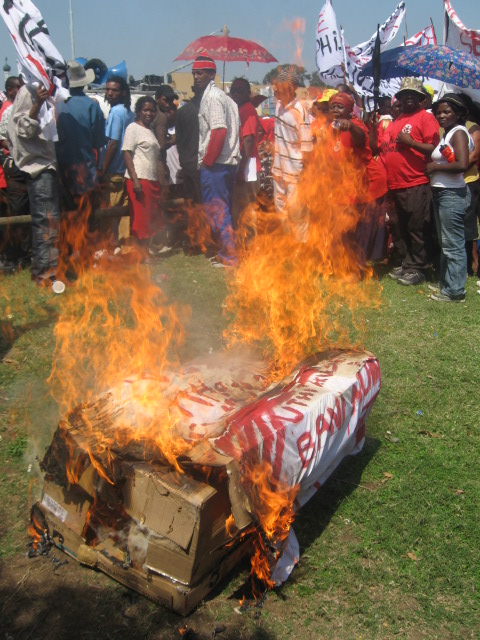Johannesburg, 30 April 2008
High Court Judge slams City of Johannesburg’s water policy and orders removal of prepayment meters if residents demand.
The Johannesburg High Court today ruled that the City of Johannesburg’s practice of forcibly installing prepayment water meters in Phiri, Soweto is unconstitutional. It also set aside the City’s decision to limit its free basic water supply to 25 litres per person per day and ordered it to provide the residents of Phiri with free basic water in the amount of 50 litres per person per day. The City was further directed to give the residents of Phiri the option of an ordinary credit metered water supply.
In a ground-breaking judgment – the first in which the constitutional right to water has explicitly been raised – Judge MP Toska criticised the municipality for its discriminatory approach to the provision of water. The Judge found that: “the underlying basis for the introduction of prepayment meters seems to me to be credit control. If this is true, I am unable to understand why this credit control measure is only suitable in the historically poor black areas and not the historically rich white areas. Bad payers cannot be described in terms of colour or geographical area.”
The Judge also found that the consultation leading up to the adoption of prepayment meters was inadequate, stating that the process was “more of a publicity stunt than consultation”. He also criticised the City’s “big brother approach” to the residents of Phiri.
The Judge stated that “25 litres per person day is insufficient for the residents of Phiri”, whom he described as “poor, uneducated, elderly, sick, ravaged by HIV/AIDS and reliant on state pensions and grants.” The judge continued that “to expect the applicants to restrict their water usage, to compromise their health, by limiting the number of toilet flushes in order to save water is to deny them the rights to health and to lead a dignified lifestyle.”
The Judge found that increasing the free basic water supply would not put significant strain on the City’s water and financial resources, especially if free basic water already supplied to rich households is redistributed to the poor.
Jackie Dugard, Acting Director of CALS and a member of the applicants’ legal team said “It has been a long hard road for our clients. This judgment is not only a victory for them, but for all poor South Africans. Judge Tsoka has shown that socio-economic rights have teeth. His judgment shows a careful and sensitive understanding of the law, the City’s obligations, but above all our clients’ lives”.
Stuart Wilson, Head of the CALS Litigation Unit said that “the judgment speaks volumes about the City’s approach to the poor and the vulnerable. A serious rethink of the City’s approach to poverty must now take place”.
For more information, contact: Jackie Dugard on , Stuart Wilson on or Dale McKinley of the Coalition Against Water Privatisation on

 Stumble It!
Stumble It!